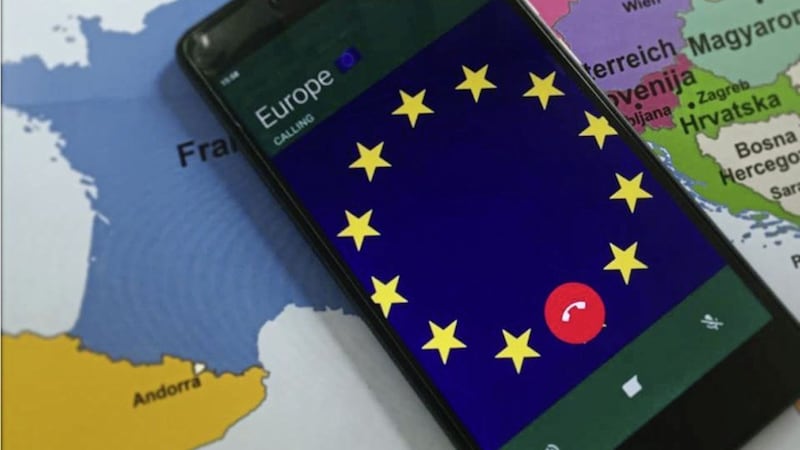The UK's exit from European Union could reverse plans to drop mobile phone roaming charges, prompting fears of bigger bills not just for holidaymakers but for those living along the Irish border.
Neither the British government, regulator Ofcom nor mobile phone networks O2 and EE have been able to give assurances that the EU's planned abolition of mobile phone roaming charges from June will not be curtailed because of Brexit.
It comes after a February report by the European Parliament's industry, research and energy committee that the roaming deal would not apply in the UK after Brexit and called for transitional arrangements.
On June 15 roaming charges for travel within the European Economic Area are to be abolished.
This means communications such as phone calls, text messages and data, made from another EU country will be covered within your existing network plan, as if you were at home.
In the past mobile phone users in the north have faced extra charges when in Europe and many living in border counties have racked up unexpected costs when their mobile inadvertently picks up signal from the Republic.
Just last week Sinn Féin MEP Martina Anderson said Brexit will mean people in the north will have to continue paying roaming charges.
She warned that due to the British government's "Brexit agenda" people in the north will be unable to avail of this deal.
"It is yet another example of the cost of Brexit to everyone in the community," she said.
East Derry SDLP MLA John Dallat said the re-introduction of roaming charges could have a major impact on private and business users.
"After years of trying to sort this out, people in border counties in Ireland are again going to be penalised because of the foolish decision to leave the European Union," he said.
When asked if the agreement to end roaming charges is under threat a UK government spokesperson said: "Roaming surcharges for travel within the European Economic Area will be abolished from June 15 2017.
"We will be seeking the best possible ongoing arrangements on roaming charges which delivers for UK consumers and business as part of our exit negotiations."
Ofcom said the impact of Brexit on the UK’s communications market "remains to be determined, and will depend on arrangements yet to be negotiated between the UK and the EU".
"We will continue to work closely with Government and relevant international stakeholders and regulatory bodies to support and protect the interests of UK consumers and businesses," they said.
Mobile phone networks O2 and EE said they hoped the government put the consumer "top of their agenda" during Brexit negotiations. Both have insisted they will be engaging with the government and Ofcom to discuss what may happen in the future once the UK officially leaves the EU in 2019.
Vodafone has already announced that it is scrapping roaming charges for the UK in 40 countries, initially to new or upgraded contracts, while network Three already offers free roaming in 42 countries on advanced plans.








